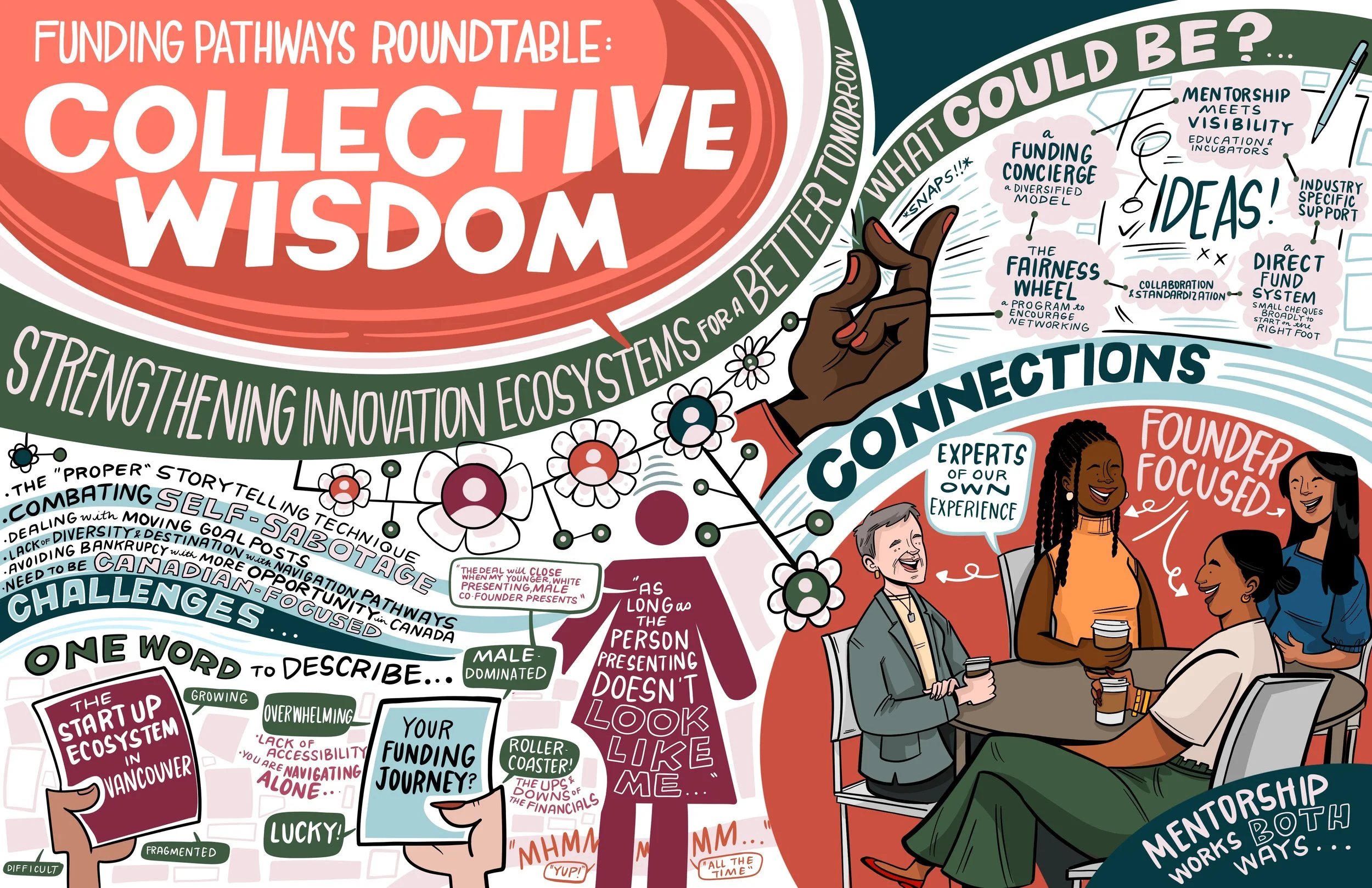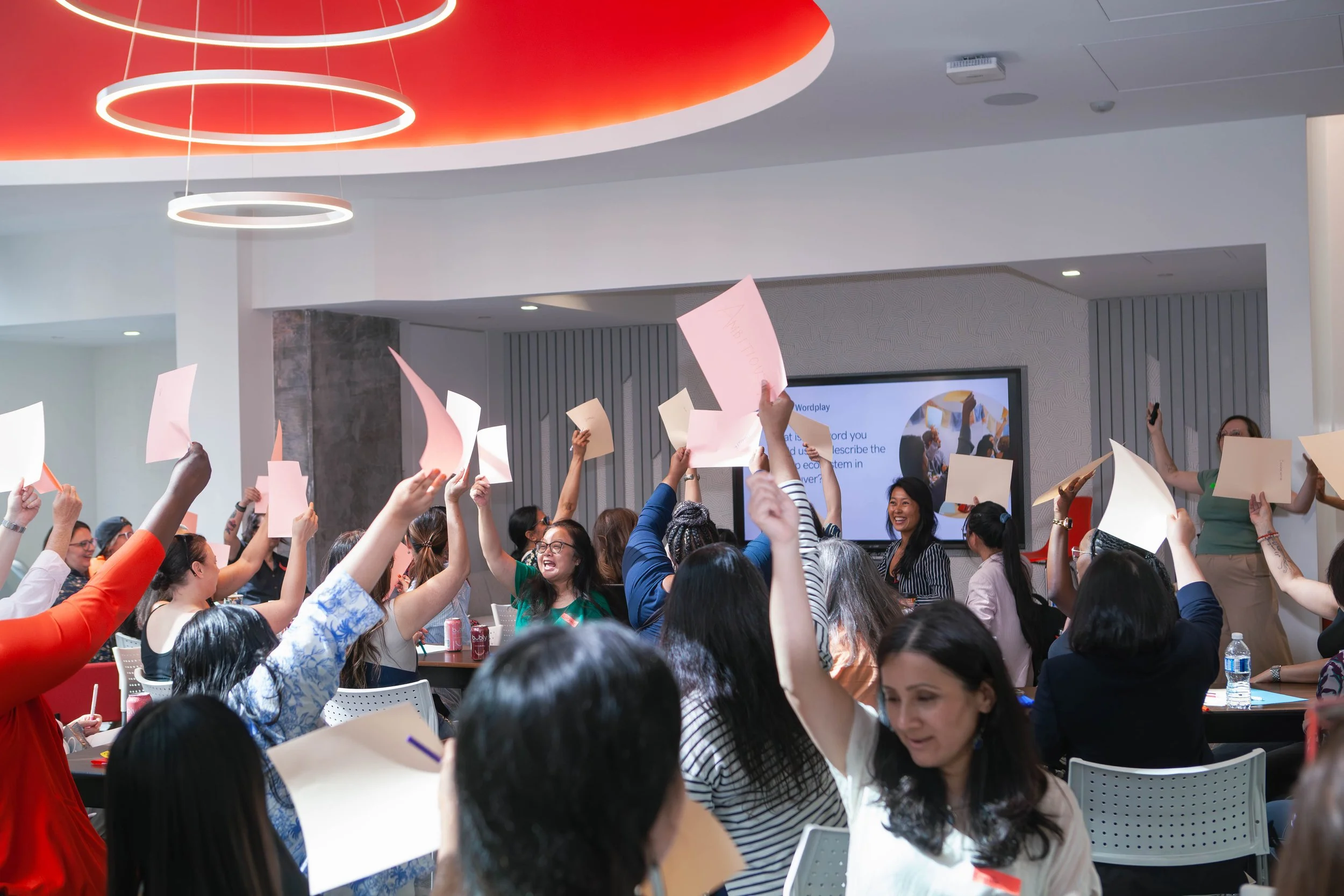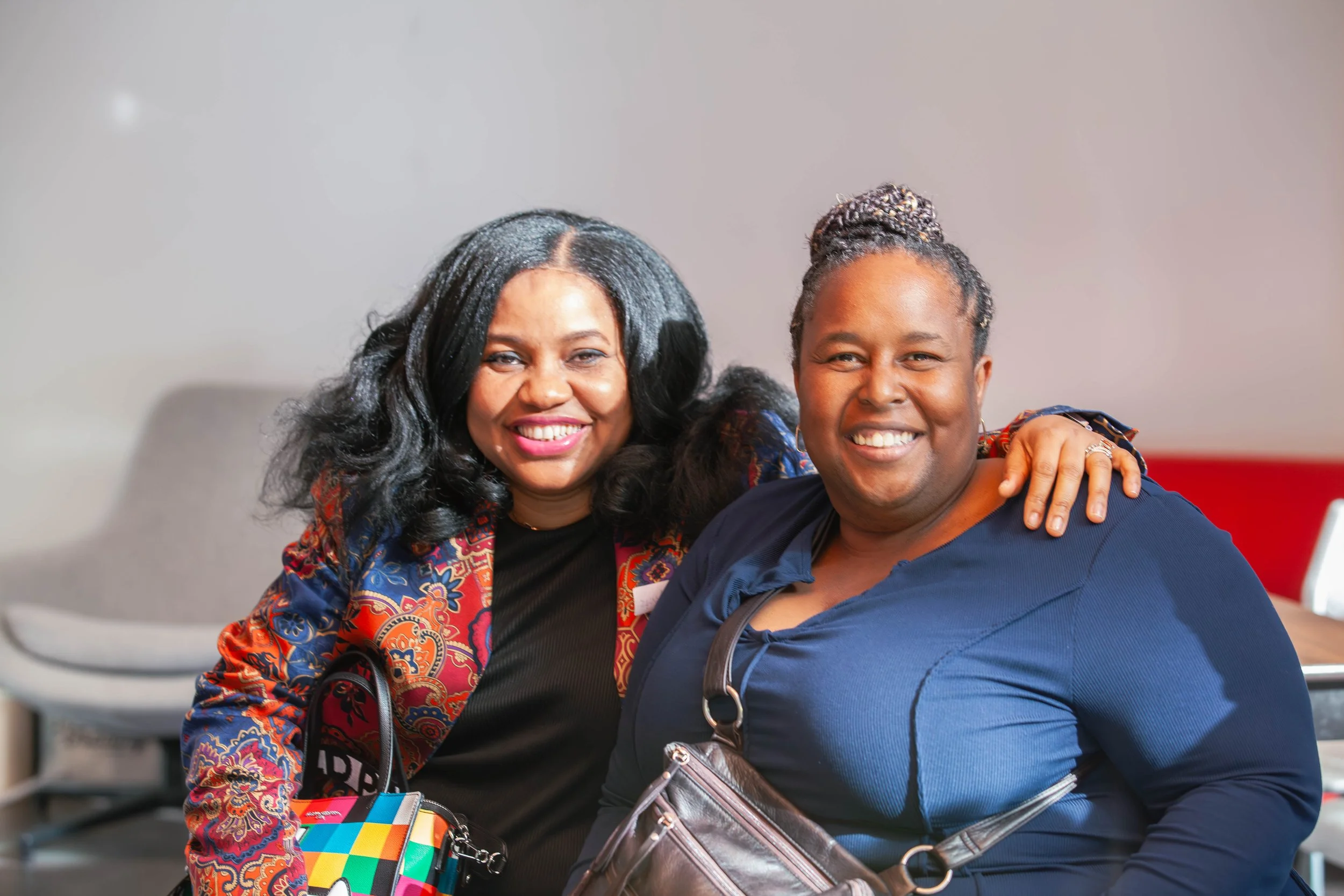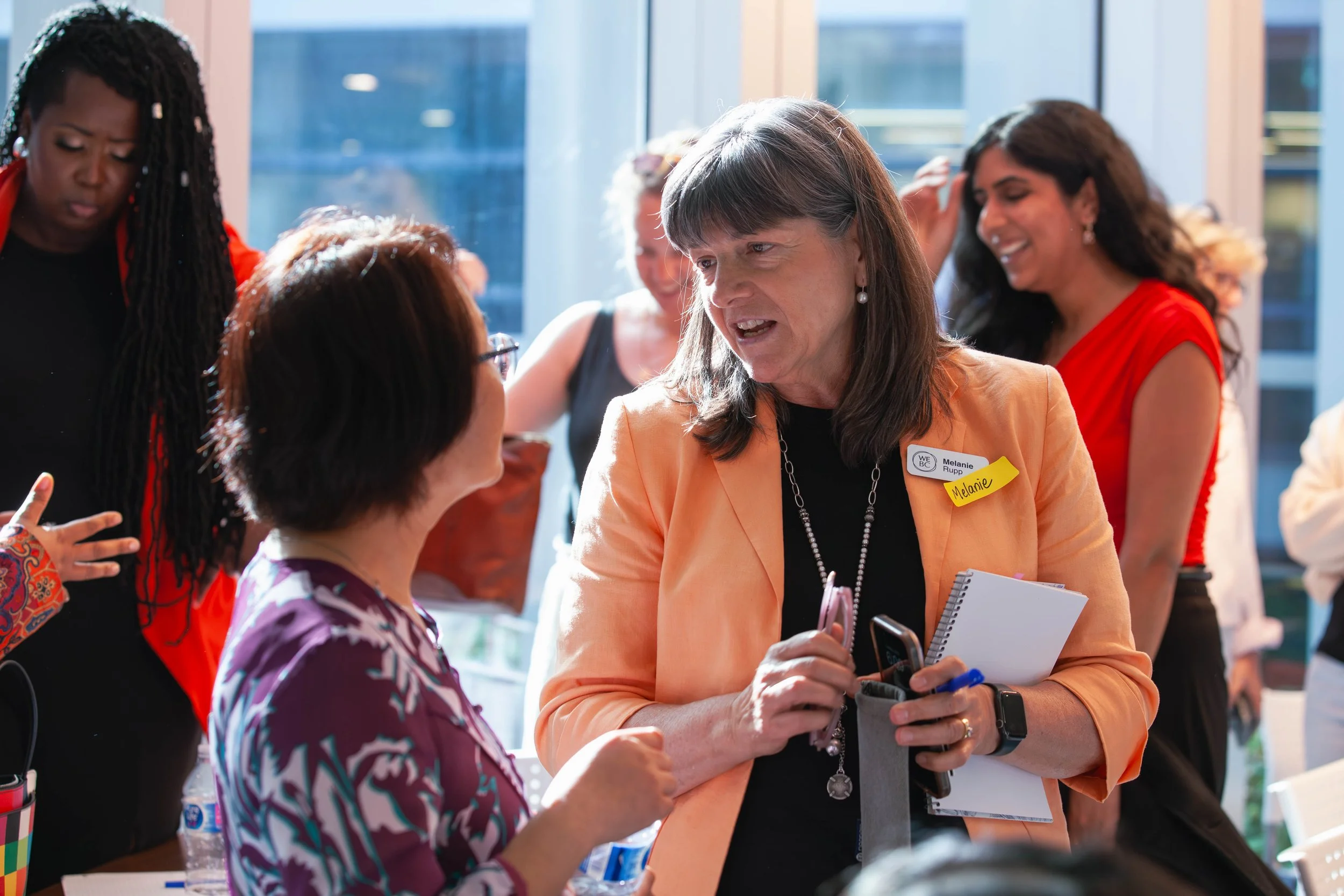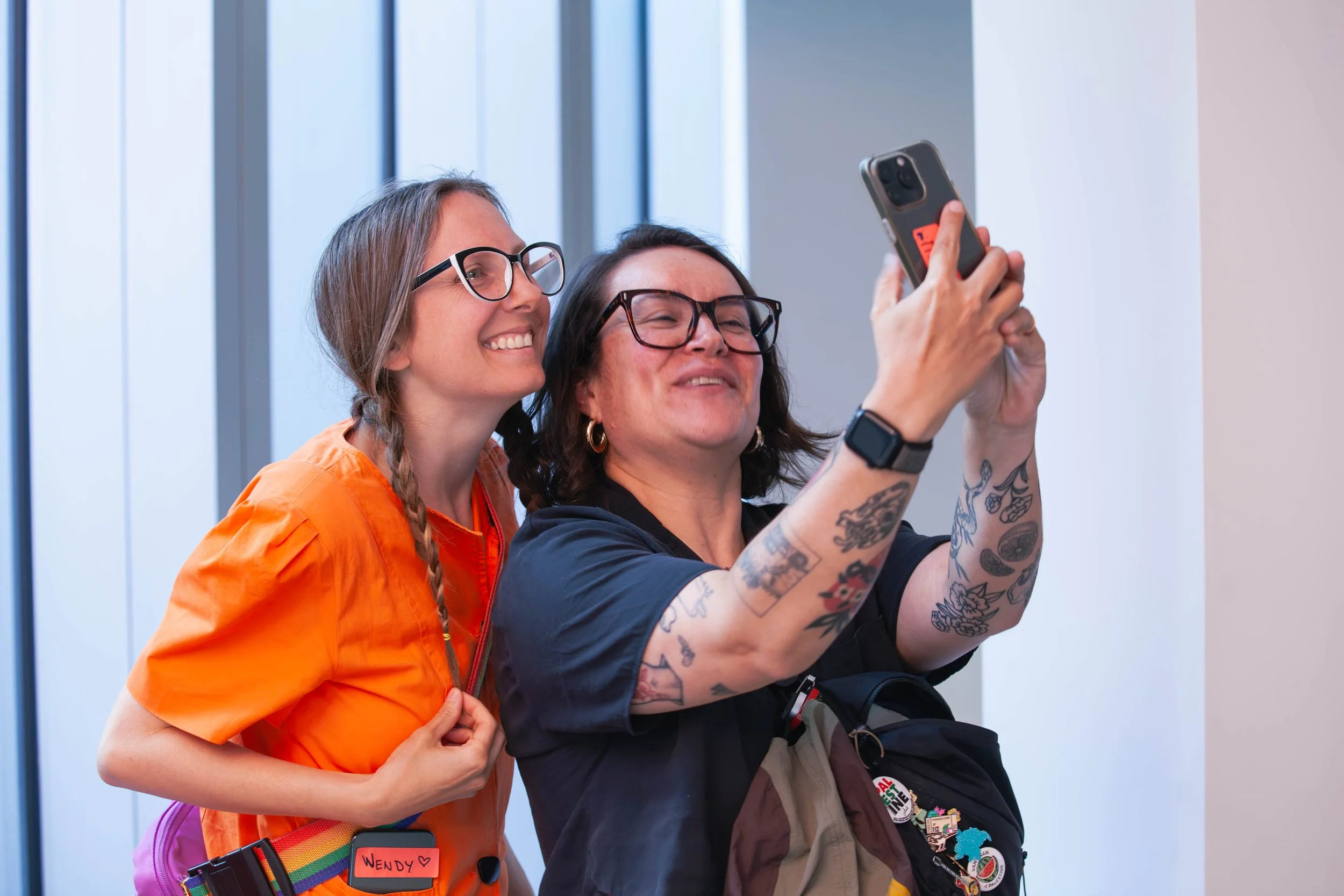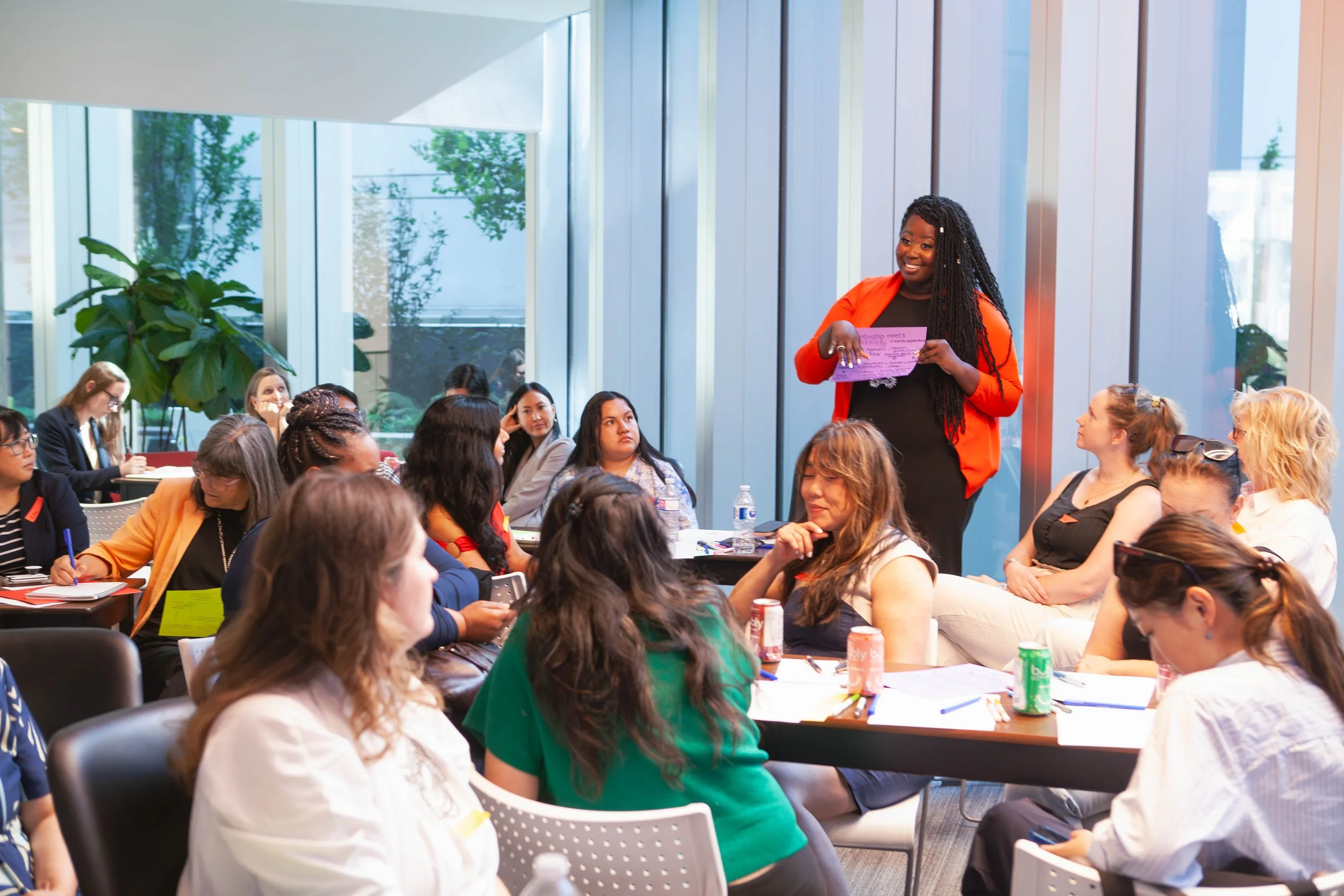Funding Pathways: Collective Wisdom
On July 15, 2025, the Funding Pathways Roundtable convened 35 women founders and ecosystem leaders in Vancouver to reflect on the state of funding access and imagine new pathways forward. Participants represented 16 industries and stages from ideation to growth. Their perspectives provide a rare window into both the barriers women face and the solutions they believe can transform the system.
Graphic recording image capturing our collective wisdom during the roundtable on July 15, 2025.
The Funding Journey Today
Founders described their experiences as everything from “rollercoaster” and “overwhelming” to “lucky” and “tenacious.” Beneath those words are systemic realities: opaque processes, mismatched eligibility rules, sector bias, conservative investor culture, and an overreliance on personal credit and guarantees. These dynamics create an uneven playing field, particularly for women and equity-deserving founders.
“Obtaining funding is like climbing the Himalayas”
“When VC isn't a reality for female-founded businesses, and all debt financing requires personal guarantees, how do we fund women without bankrupting them?”
Six challenge themes emerged across 97 distinct barriers
Four ecosystem-level themes dominated:
Cultural & Systemic Barriers – entrenched norms, sector bias, and opaque investor expectations.
Communication & Information Gaps – lack of clear roadmaps, insider reliance, and inconsistent guidance.
Structural Barriers by Design – financing rules, eligibility restrictions, and grant mismatches that systematically exclude.
Support Infrastructure Gaps – underdeveloped networks, lack of seasoned mentors, and closure of key institutions.
Two additional themes captured the personal toll:
Time & Energy Costs – heavy administrative, networking, and program burdens with low conversion.
Mental Load – the psychological exhaustion of persistent rejection, gatekeeping, and uncertainty.
These patterns reveal cascading effects: founders often face multiple, compounding barriers simultaneously, amplifying both time burdens and emotional strain. Even the most engaged founders—those participating in accelerators, incubators, competitions, and mentorship—struggled to convert their effort into meaningful funding outcomes.
“Things have been slow…building relationships can’t be rushed…how do you balance fundraising and running a business?”
Ideas for Change
Despite frustrations, the dialogue generated 73 unique solution ideas, with three top priorities:
Founder-Matched Mentorship – diverse, stage-specific mentors aligned with founders’ goals and pathways.
Flexible Founder Capital – early-stage, non-dilutive or blended funding streams with minimal barriers.
Centralised Funding & Support Hub – a transparent, stage-specific platform mapping funding sources, programs, and success pathways.
Enabling and accountability mechanisms—including peer learning, curated matchmaking, and tailored training—were identified as essential for making these solutions sustainable. Participants also highlighted Ecosystem Design Principles: inclusivity, accessibility, and transparency. These values cut across all recommendations and signal that how supports are delivered matters as much as the supports themselves.
From Frustration To Blueprint
Participants’ co-created models reflect a vision of integrated, trust-centered systems that move beyond fragmented supports. Ideas such as direct-to-founder capital, concierge-style navigation, and culturally grounded mentorship (e.g., the “Aunty Model”) point toward alternatives to traditional VC-dominated pathways.
Together, these findings form an aspirational blueprint: systemic change will require collaboration between founders, funders, and ecosystem actors, anchored in trust, accountability, and shared values.
Where Do We Go From Here?
We are deeply grateful to the 35 women founders and ecosystem leaders who showed up with candor, vulnerability, and vision. By sharing their lived experiences, frustrations, and hopes, they revealed both today's barriers and tomorrow's possibilities. What emerged is not just a catalogue of obstacles, but a collective call to action. Founders, funders, and ecosystem actors alike expressed frustrations with opacity, fragmentation, and exclusion. Yet within those shared struggles lies an opportunity: to move forward with greater transparency, inclusivity, and intentional collaboration.
The insights gathered here will inform our next phase—building a Knowledge Hub that curates strategies and models for action. This Hub will serve as a public resource for founders, funders, and policymakers to align on principles and pilot more equitable, accessible, and sustainable approaches.
We recognize this dataset is just a starting point. Thirty-five voices offer powerful insights, but more work is needed to broaden our understanding. Building on this foundation, we see an opportunity to:
Expand the dataset by engaging founders of all genders, funders, and ecosystem actors nationally.
Host ongoing Community Dialogues that create space for shared reflection and co-creation.
Ultimately, we cannot transform funding pathways in silos. The work ahead requires both direct investments in founders and collective investment in the surrounding ecosystem. By embracing shared accountability and trust, we can dismantle systemic barriers and design pathways that truly reflect the diversity, resilience, and ambition of Canada's entrepreneurs.

